Wellbeing and Inclusion
Mrs Courtney Hoffmann - Acting Assistant Principal
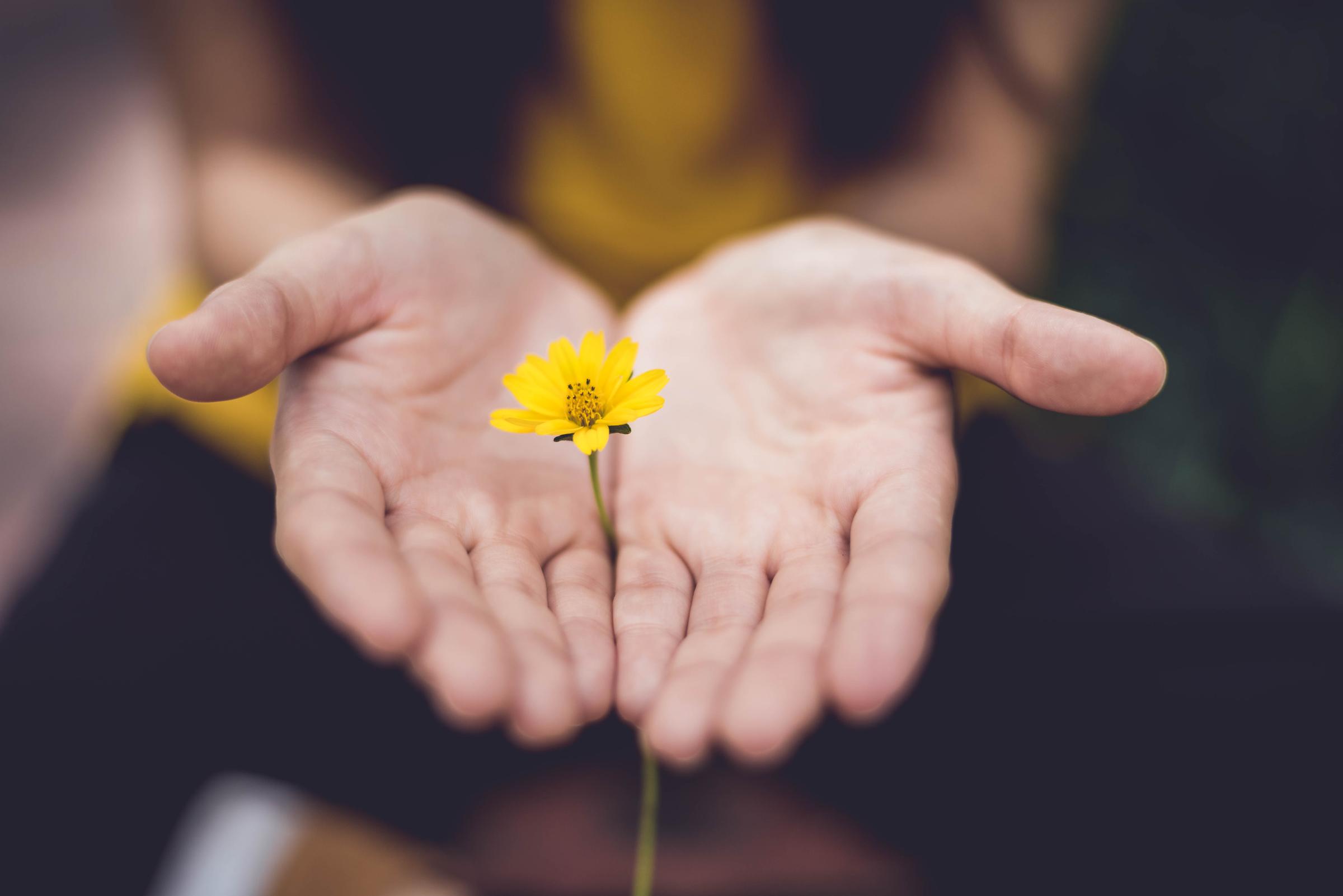
Wellbeing and Inclusion
Mrs Courtney Hoffmann - Acting Assistant Principal
We know how lucky we are at Karoo PS to have exceptional Educational Support Staff. On Tuesday 16th of May staff and students took time to acknowledge the amazing work that our ES staff do for us.
The list of things that our ES staff all do to make our school a better place is endless! However, we’d like to acknowledge how they help us to learn in ways that match our learning styles, how they listen to us and our needs and how they never fail to put a smile on our faces!! Thank you all so much for supporting our school. We appreciate all that you do and please know that you make our school a better place every day.
To celebrate our ES Staff, the staff and students hosted a special lunch and presented each ES Staff member with a special card that was created by each class throughout the school. When you see our ES staff around the school please ensure you say a big thank you too 😊
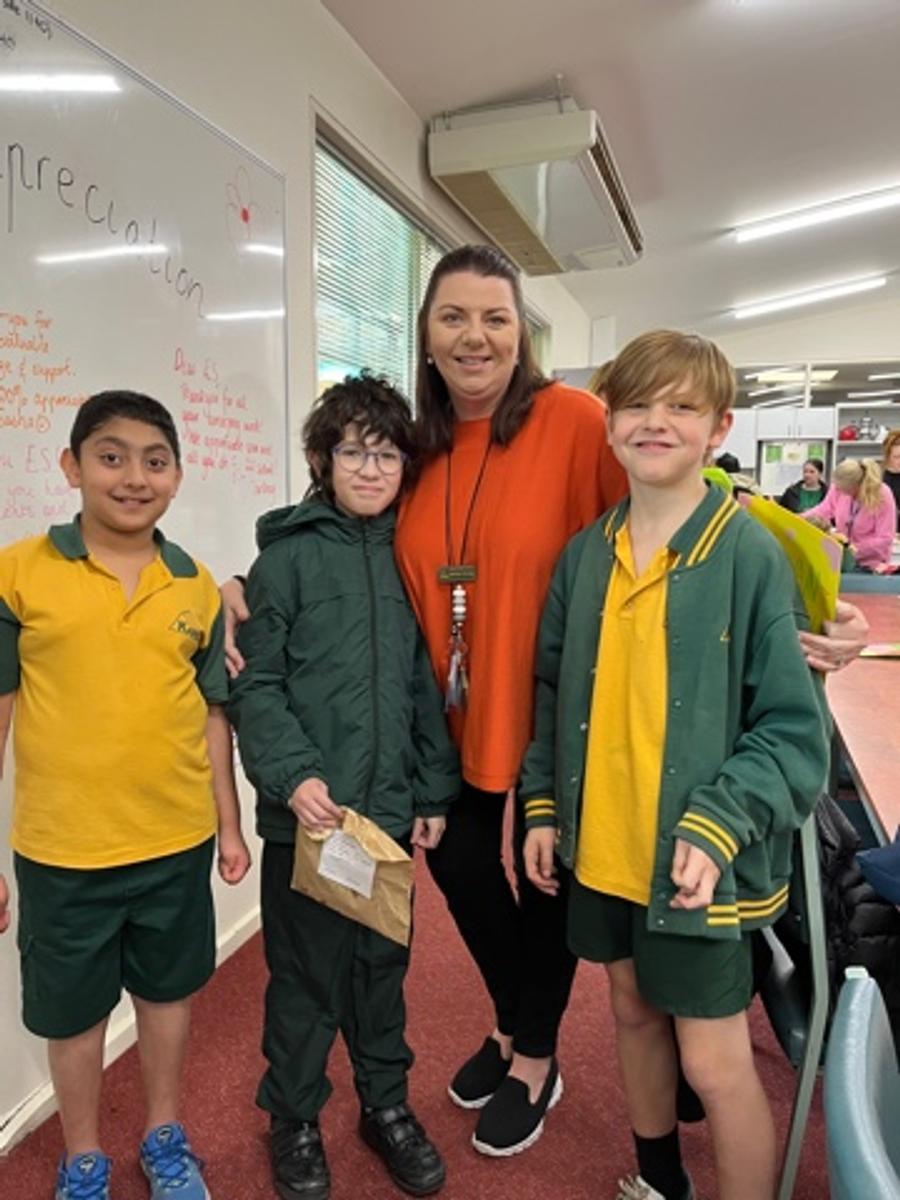

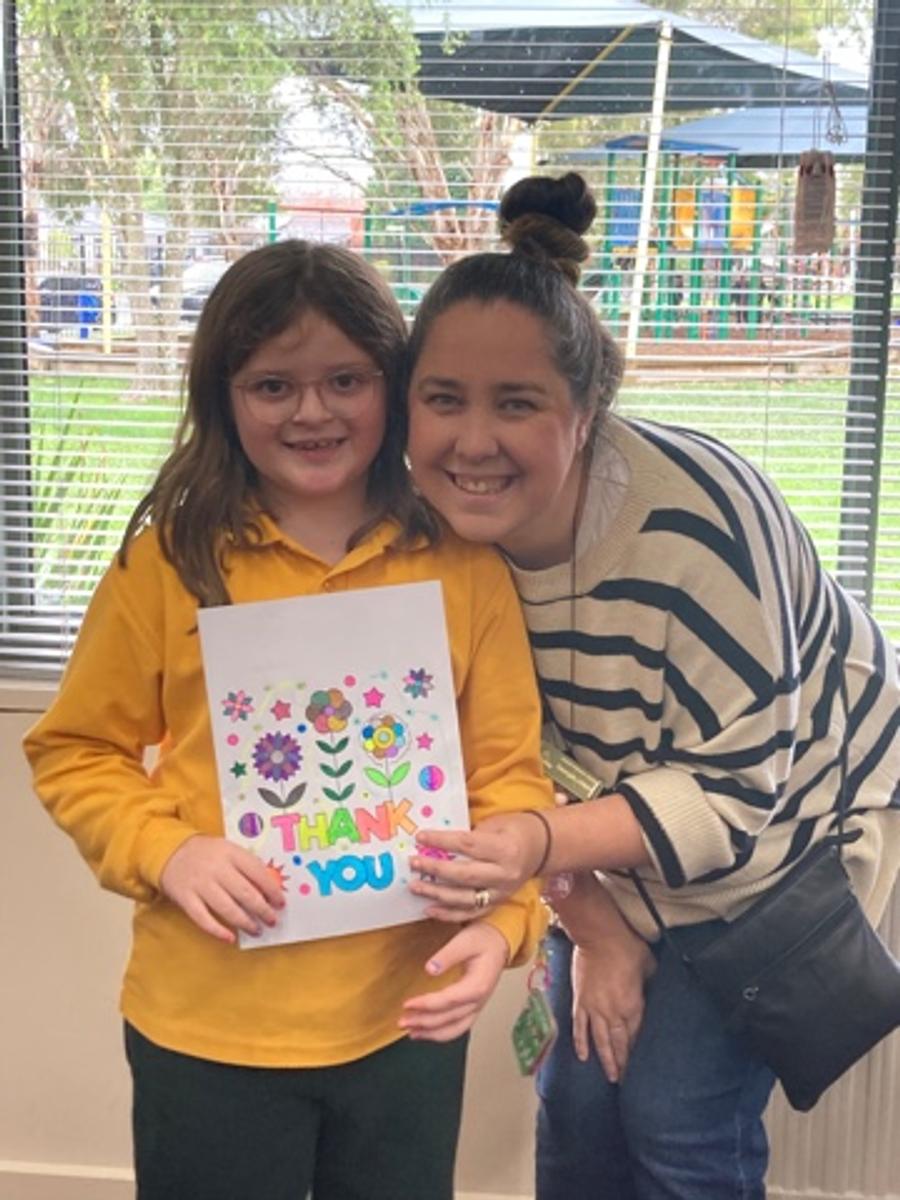
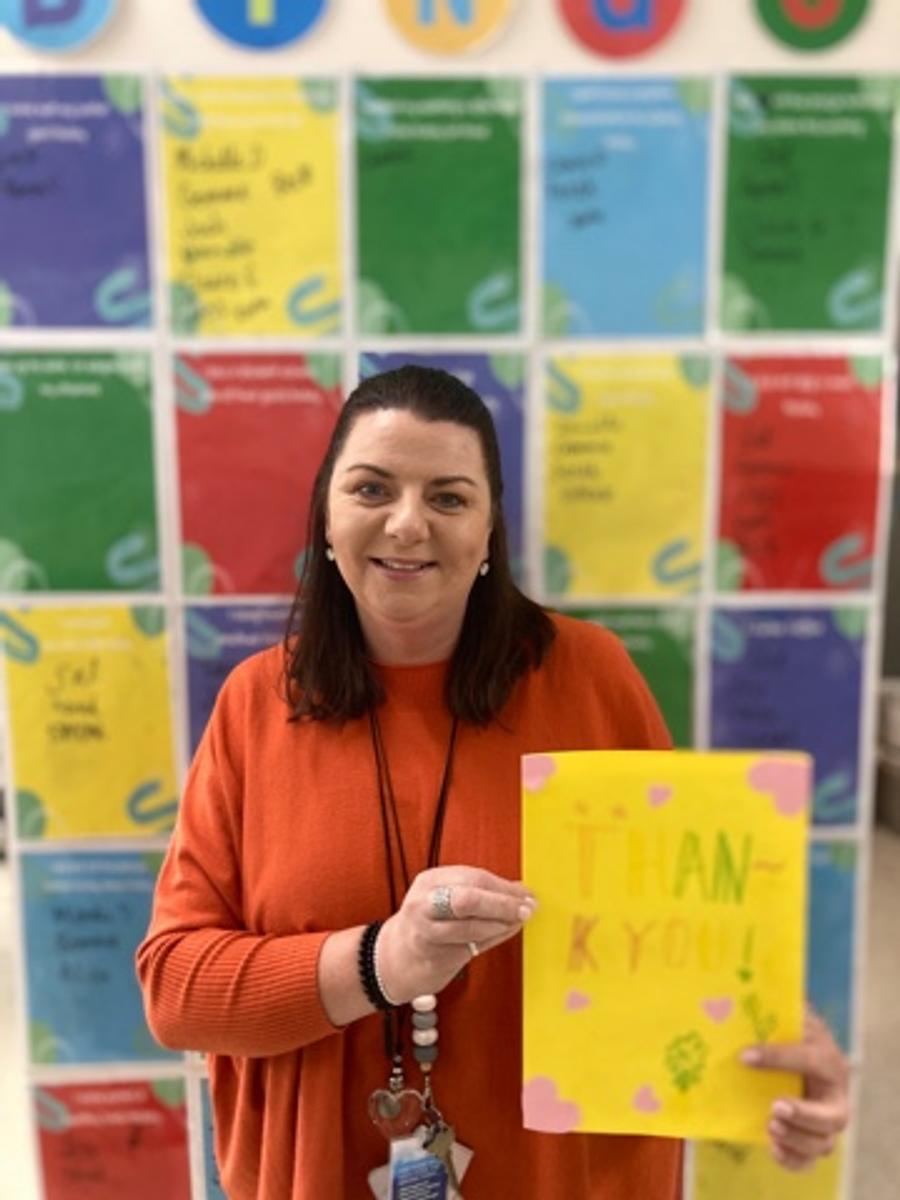
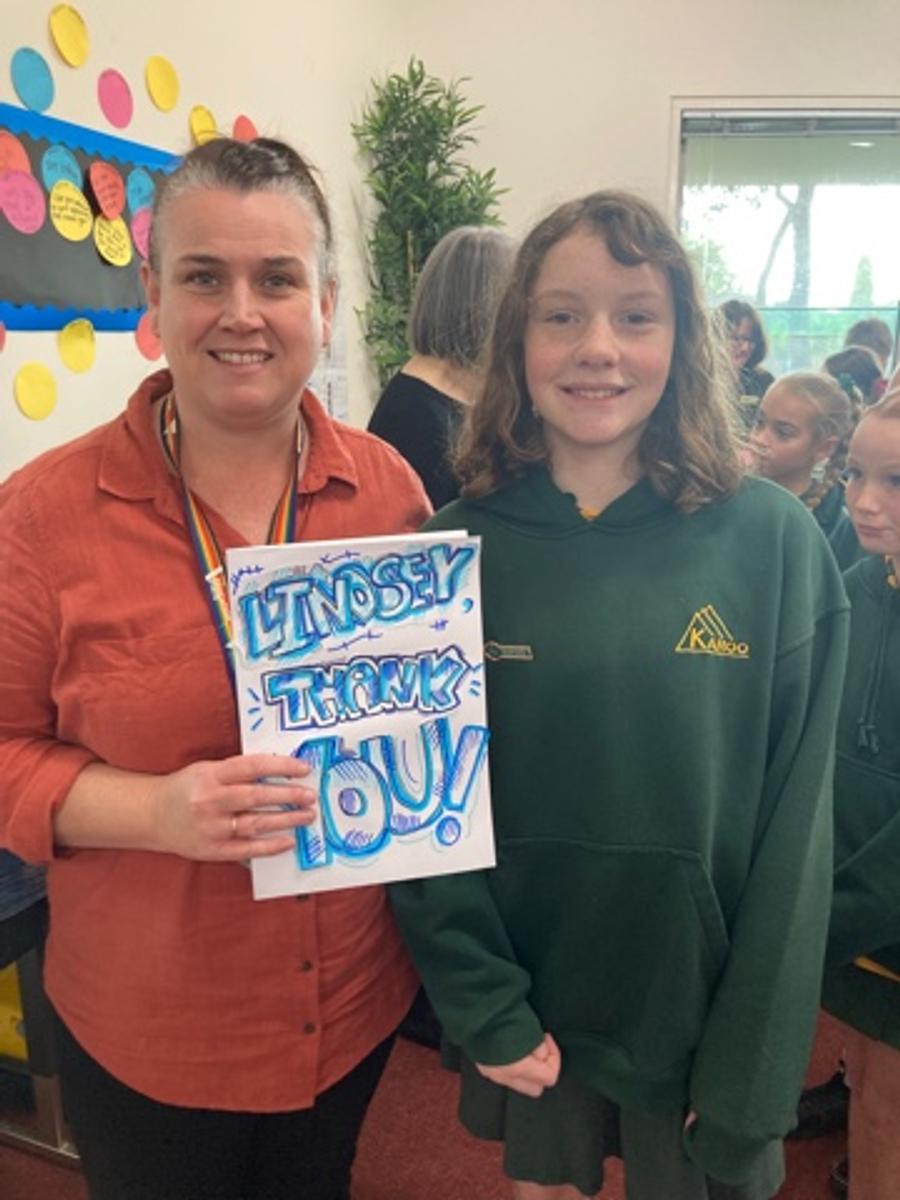

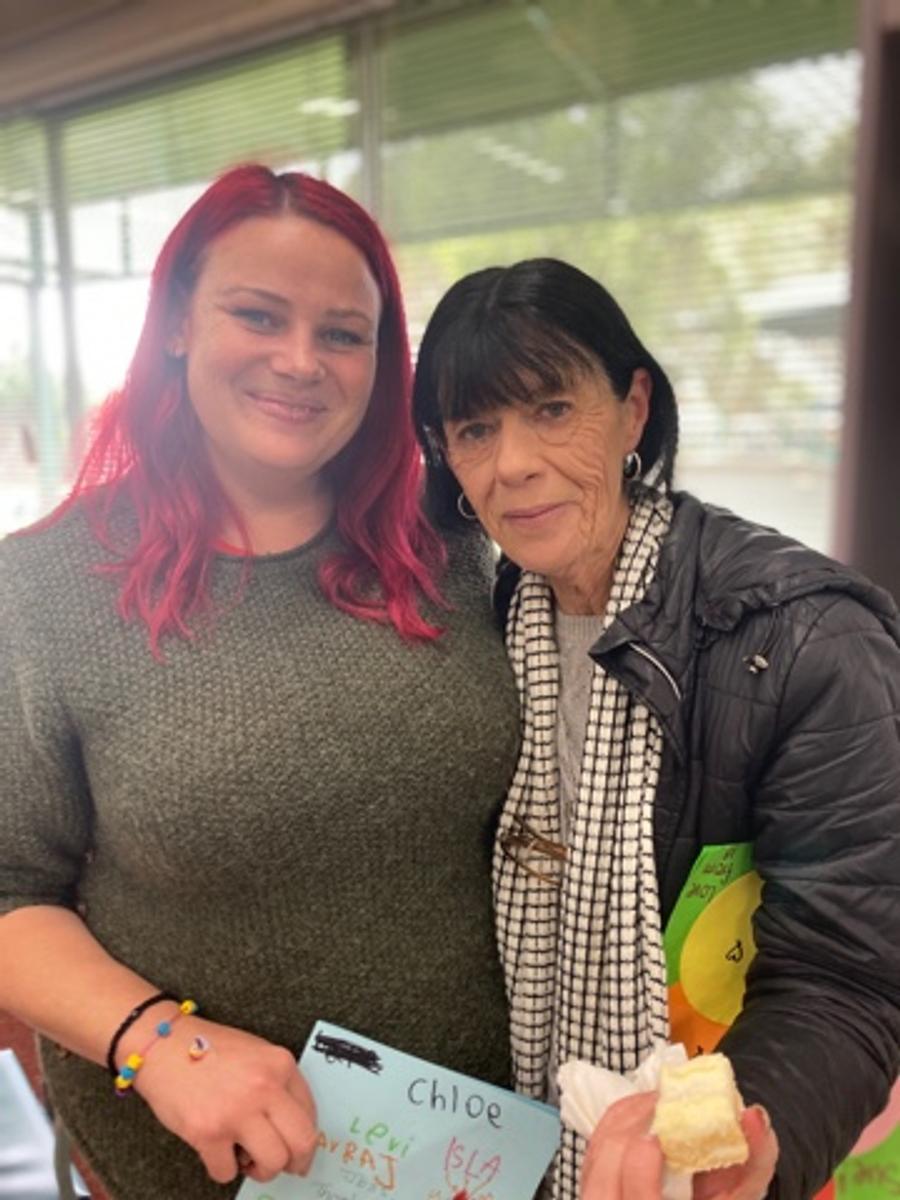











Karoo PS Morning Welcome – What a way to start the day!
Each morning our student wellbeing leadership team has been kick starting the Karoo Day with a morning welcome or Wominjeka (Welcome in Wurundjeri) over the PA system. The leaders have been including an update on the day ahead, as well as an inspiring quote for us all to reflect on over the course of the day. When you come to drop off your children, please listen out for their updates and welcoming voices!
We all know that attendance at school is very important. Our newly launched Karoo Attendance motto is inspiring students to be at school.


Some of our Year 4 students, Mason and Xavier, know exactly why it is important to be at school and what we are doing at Karoo PS to support and encourage students to be a school on time, every day.
Student feedback on why it is important to:


At Karoo, our classroom doors open at 8:50am – Why does this happen?


Ten Ways to help your child understand their feelings
‘Parents play an important and supportive role in helping children to recognise, name and manage their emotions. Here at Karoo PS, we aim to work with parents to support to understand different ways to help their children develop a greater understanding about their emotions.’
When something doesn’t go to plan in your day, how to you react? When someone does something that upsets you, what do you say? If something doesn’t go according to plan at work or in your family life, how do you feel and how do you manage those feelings?
As adults, most of us have learned how to recognise our emotions and we’ve developed strategies to manage our anger, frustration, resentment, fear or sadness. We might talk to a friend, take a deep breath, have some quiet time or go for a walk to clear our head.
Supporting children to listen to their feelings, recognise what those feelings are and find ways to process them, is very important, and parents play a key role in this learning.
“Parents can help their children to listen, reflect on and express their emotions appropriately by modelling this with their own behaviours and reactions to their emotions.”
Research and experience have shown us that despite adversities, if a child is able to develop and maintain positive relationships with parents, peers and teachers at school, they will achieve better emotional, social, and academic outcomes. Therefore, integrating social and emotional learning into a child’s learning is a helpful way to help students recognise and understand their feelings. It also helps students to learn about strategies and skills that can be used to help them manage a range of emotional responses. Providing students with an opportunity to develop these skills can promote the development of a positive sense of self, healthy relationships, and responsible decision making.
At Karoo PS we support students to develop a greater understanding of their emotions and to regulate their emotions by utilising the Zones of Regulation framework. The Zones of Regulation (Kuypers, 2011) is a framework to develop self-regulation and emotional control. It is a systematic and cognitive behaviour approach that categorises our emotions and states of alertness that we experience into four zones; The blue, green, yellow and red zone. Optimal learning occurs in the Green Zone. However, there are different emotions that are experienced with the four different zones. The diagram below lists the common emotions that can be experienced in the different zones.
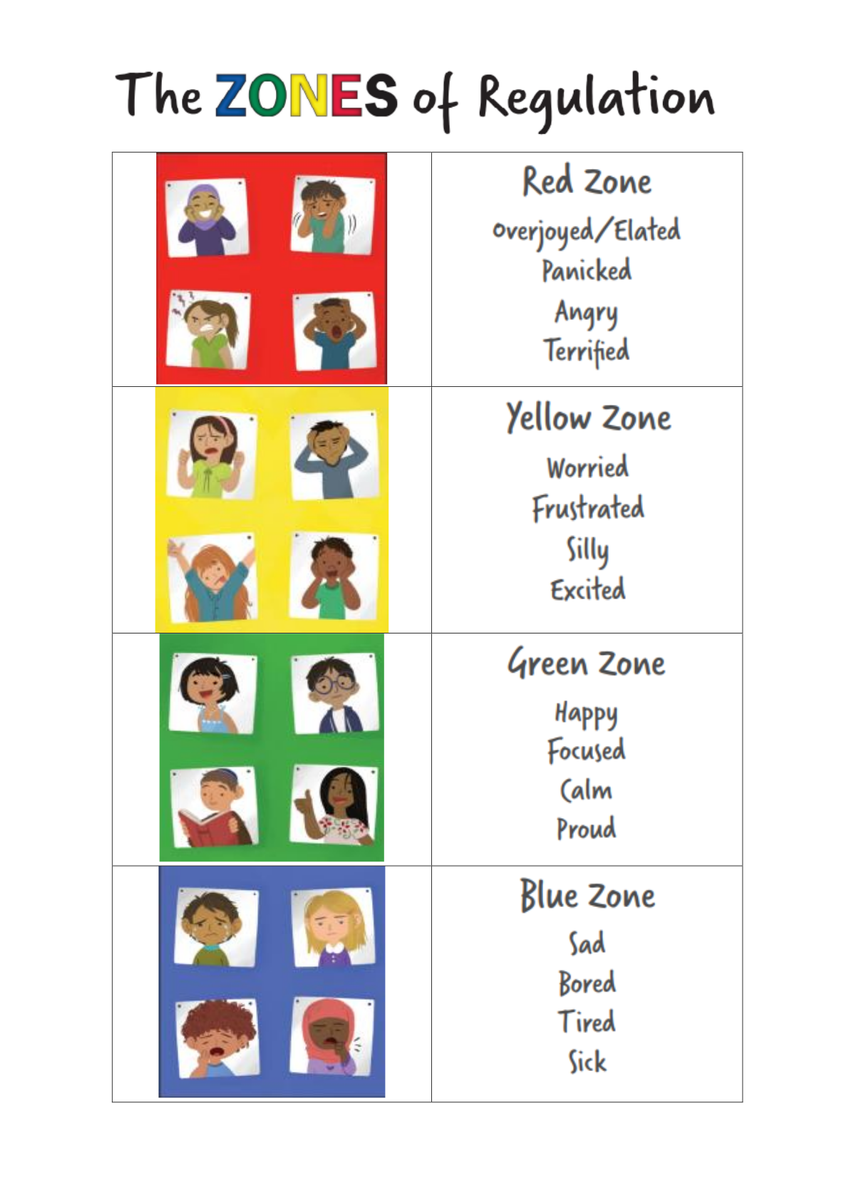

So, what can parents do to help children
recognise and regulate
their emotions?
1 Help children put words to what they are feeling. Ask them how they are feeling and help them label their feelings to build their emotional vocabulary.
2. Emphathise with how your child is feeling and normalise it. You can say ‘I can see you are feeling ….. because your body is ……….. I have felt that way too.’ This helps your child to feel that their emotion is okay and that they are not the only person who feels this way sometimes and that you understand how they are feeling.
3. Share things that you do to feel better. Such as going for a walk, counting to ten, deep breathing, mindfulness exercise or talking to a trusted friend. Or ask your child ‘What do you think we could do that might help right now?’
4. Fully listen to what your child is saying and watch their body language. You can validate what they have told you by saying things like ‘from what I am hearing, it sounds like you are really angry about ……. Or it sounds like you are feeling frustrated about ……….’
5. Use a framework to discuss emotions, such as the Zones of Regulation. This enables consistent language to be used to identify emotions and strategies to support students when they feel they are in a particular zone.
6. Discuss problem solving strategies with your child. This helps them to more clearly identify a problem, brainstorm possible solutions, think about them and select the most appropriate course of action.
7. Encourage and model positive self-talk and a growth mindset. Model how to use positive self-talk to encourage yourself. Support your child to recognise negative thoughts and how to replace them with positive and empowering statements.
8. Provide visual Cues when needed. Providing children with visual clues can help them manage their time and to understand how changes in their world can impact their emotions and how to manage this.
9. Provide breaks and movement opportunities. Encourage your child to take breaks to release energy and improve focus and concentration.
10. Remember that as a parent you don’t always have to solve what your child is going through. Listen, reflect and support them to problem solve through the struggle or challenge. This will help promote the development of their self-esteem, as they learn that they can move through a challenging time and be okay on the other side.
Overall, it is important to remember that each child is unique and it is essential to personalise strategies to support each child’s individual needs and abilities.
I hope you all have a fantastic fortnight!
Kind Regards,
Courtney Hoffmann
Acting Assistant Principal

